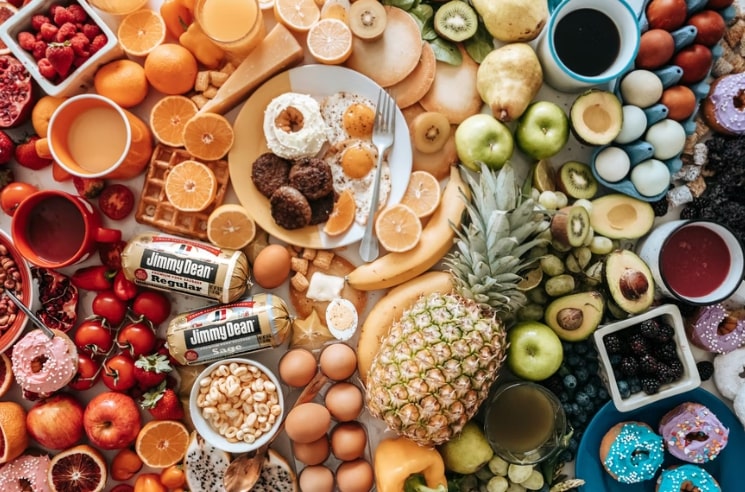
In today's diligent customer landscape, the need for morally sourced and also lasting items has actually surged. Private label food manufacturers have actually emerged as trailblazers in this domain name, usually teaming up with agreement food makers to spearhead sustainability as well as responsible sourcing efforts. With an undaunted commitment to ecological values, private label brands have made it their goal to provide sustainable, top quality options to consumers.
Private Label Food Manufacturers
Recently, private label food manufacturers, also known as own brands or store brands, have seen a remarkable surge in appeal. These producers create goods offered under the logo design of a retail store, grocer, or private entity. What collections private-label items apart is their ability to supply competitive rates without compromising on top quality.
Contract Food Manufacturers
Lots of private-label food manufacturers sign up with forces with agreement manufacturers to establish their line of product. Contract food suppliers are specialists in producing food for personal labels. This strategic partnership allows exclusive label firms to tap into the competence, resources, as well as dedicated food production facilities of their partners.
Sustainability at the Core
Private label food manufacturers use numerous strategies to enhance sustainability within their supply networks:
Honest Sourcing:
Personal label companies are increasingly dedicated to sourcing active ingredients according to honest and reasonable profession requirements. This entails guaranteeing that manufacturers and also employees of basic materials, such as coffee beans, flavors, or chocolate, get fair settlement for their initiatives.
Local Sourcing:
Prioritizing neighborhood sourcing of ingredients is an additional characteristic of private-label food makers. This not just reduces the carbon impact associated with transportation but likewise supports regional farmers and communities.
Organic Ingredients:
With the health food market on the rise, private labels are responding by including natural components into their product. Organic farming methods focus on soil health while eschewing synthetic chemicals and plant foods.
Sustainable Fish and shellfish:
Private Label Food Manufacturers are persistent in making sure that the fish and shellfish they use is sustainably gathered, adhering to standards set by organizations like the Marine Stewardship Council, which advertises responsible angling.
Lowered Food Waste:
Personal label companies are actively dealing with minimizing food waste by executing effective manufacturing procedures as well as developing items with longer shelf lives. Some brand names are additionally partnering with food rescue organizations to give away excess food to those in requirement.
Eco-Friendly Product Packaging as well as Initiatives
Sustainability initiatives by private-label food suppliers prolong beyond sourcing active ingredients to encompass product packaging and green campaigns:
Lasting Product packaging:
Private label brands have actually embraced environmentally friendly product packaging choices, including recyclable, biodegradable, or compostable products. Redesigning packaging to reduce excess material and also decrease environmental effect is a top priority.
Waste Decrease:
To reduce waste, private-label food makers optimize item dimensions, reduce excess packaging, and explore ingenious product packaging solutions. Some brand names even encourage consumers to participate in recycling programs.
Energy Efficiency:
Lots of private label producers are buying even more energy-efficient manufacturing plants, lowering water use, and also embracing renewable energy resources to further decrease their environmental footprint.
Carbon Neutral Initiatives:
Some personal private label food brand name food producers are taking enthusiastic steps to accomplish carbon neutrality by countering their greenhouse gas discharges via reforestation projects and renewable resource credit reports.
Challenges and the Road Ahead
Regardless of the substantial strides made in sustainability and accountable sourcing, private-label food makers face difficulties. Stabilizing sustainability with cost-effectiveness can be a fragile act, often needing concessions on sustainable active ingredients or the expedition of green alternatives.
Nevertheless, the future of private-label food manufacturing holds excellent guarantee. As customer awareness and demand for sustainable products remain to rise, private-label brands and their agreement food manufacturing partners are likely to magnify their initiatives. Collaboration with vendors as well as financial investment in sustainable technical advancements as well as openness will be crucial fit a lasting future for the sector.
Regularly Asked Concerns
Q1: What are private label food manufacturers?
Private label food manufacturers produce items offered under the logo of a store, grocer, or private entity. They offer competitively priced products without endangering on quality.
Q2: Just how do private label food manufacturers promote sustainability?

Private label food manufacturers promote sustainability with moral sourcing, local active ingredient procurement, using organic active ingredients, sustainable seafood practices, and also efforts to reduce food waste.
Q3: What eco-friendly packaging choices do private label brands make use of?
Personal label brands take on environment-friendly product packaging choices such as recyclable, biodegradable, or compostable materials. They additionally upgrade packaging to lessen excess product and also lower ecological impact.
Q4: What tests do private label food manufacturers deal with in sustainability initiatives?
Balancing sustainability with cost-effectiveness is a major difficulty for private label food manufacturers. This might require concessions on sustainable ingredients or the expedition of eco-friendly choices.
Conclusion
Private label food manufacturers go to the leading edge of the sustainability and liable sourcing activity within the food industry. Their dedication to moral sourcing, local procurement, natural components, and also lasting practices, as well as their devotion to green packaging and waste decrease campaigns, show their determination to meet the needs of today's eco-conscious customers.
Despite the challenges they deal with, private label food manufacturers are poised for an appealing future. With consumers progressively focusing on sustainability, the sector is likely to witness even greater cooperation with suppliers, financial investment in lasting innovations, and a commitment to openness. As we move on, private label food manufacturers will remain to play an important role fit a more lasting as well as ethical food landscape for all.